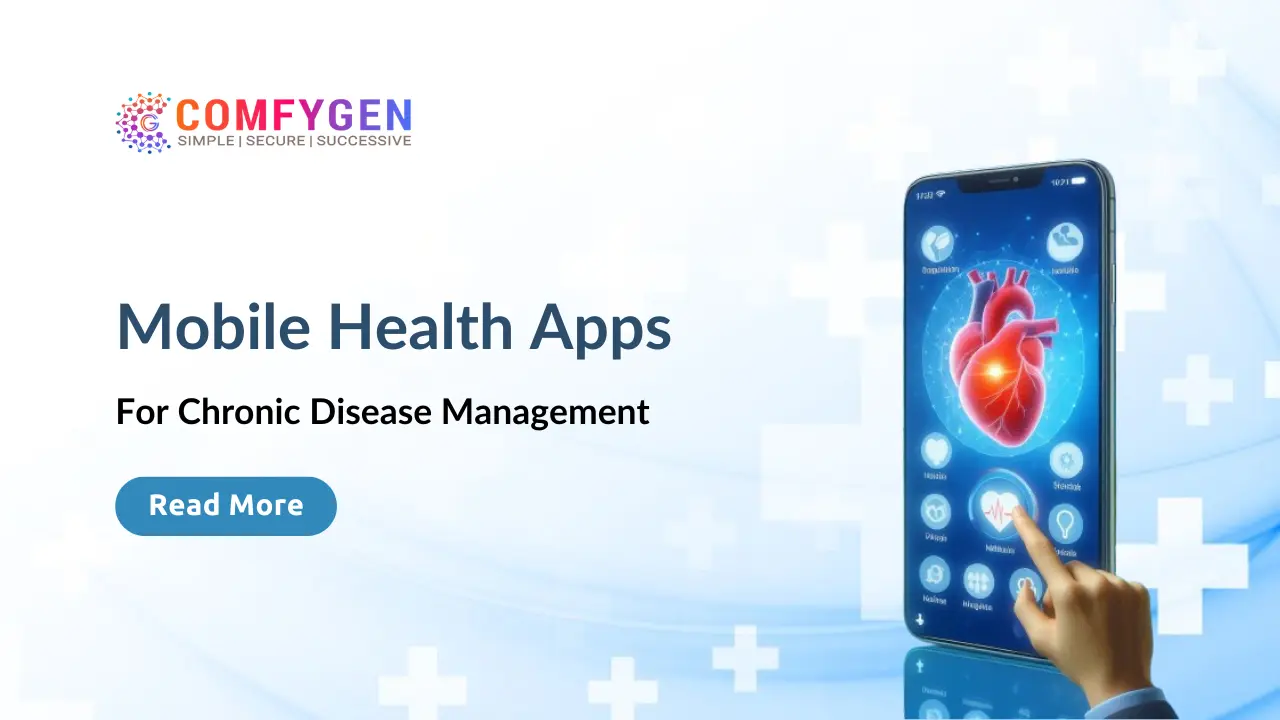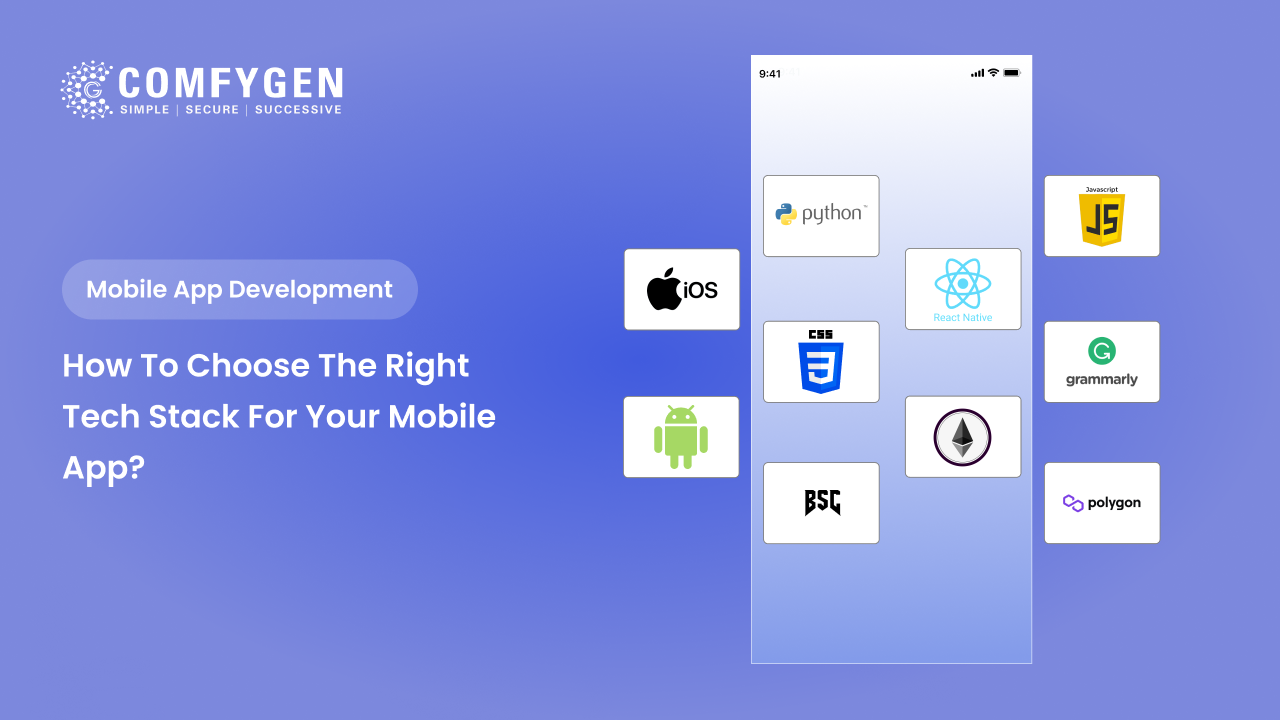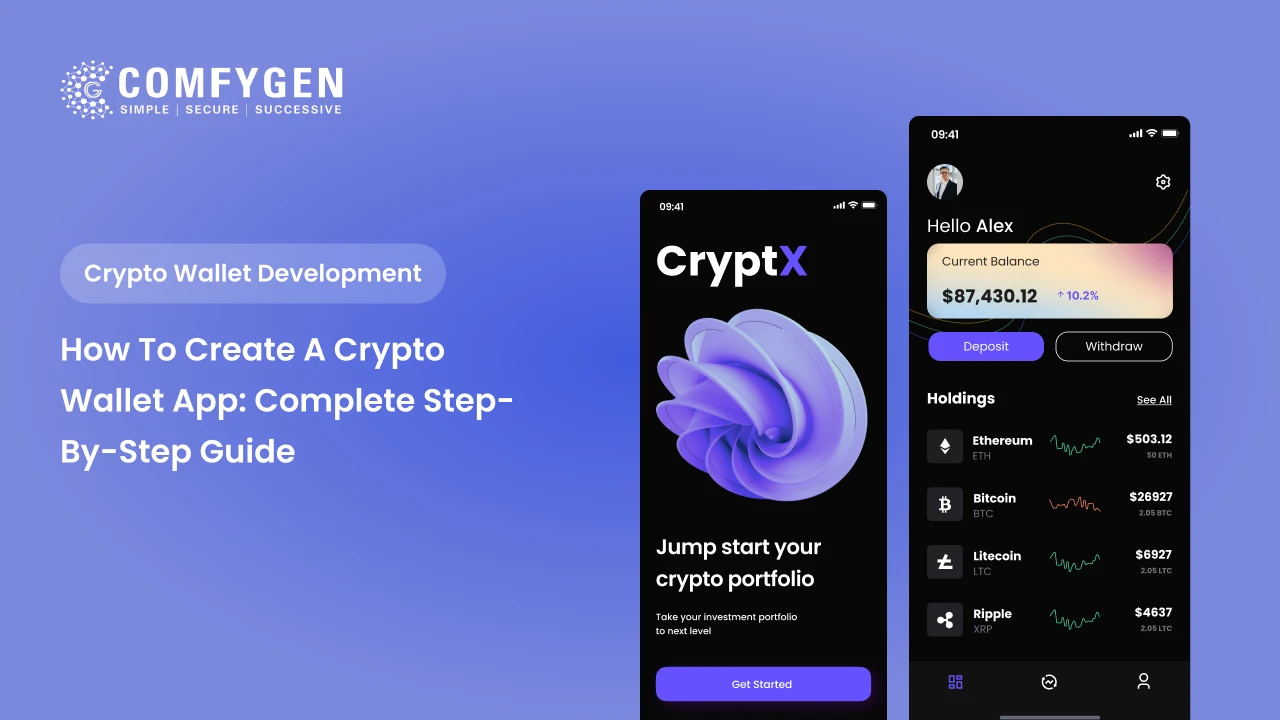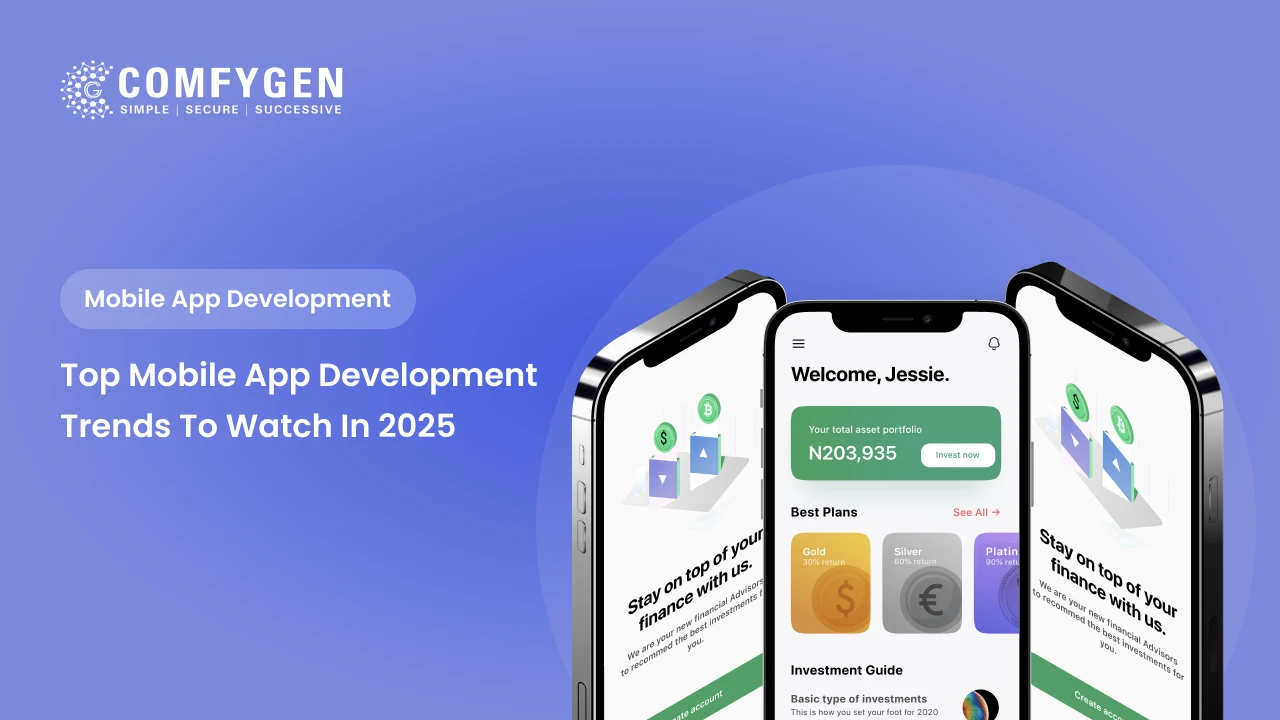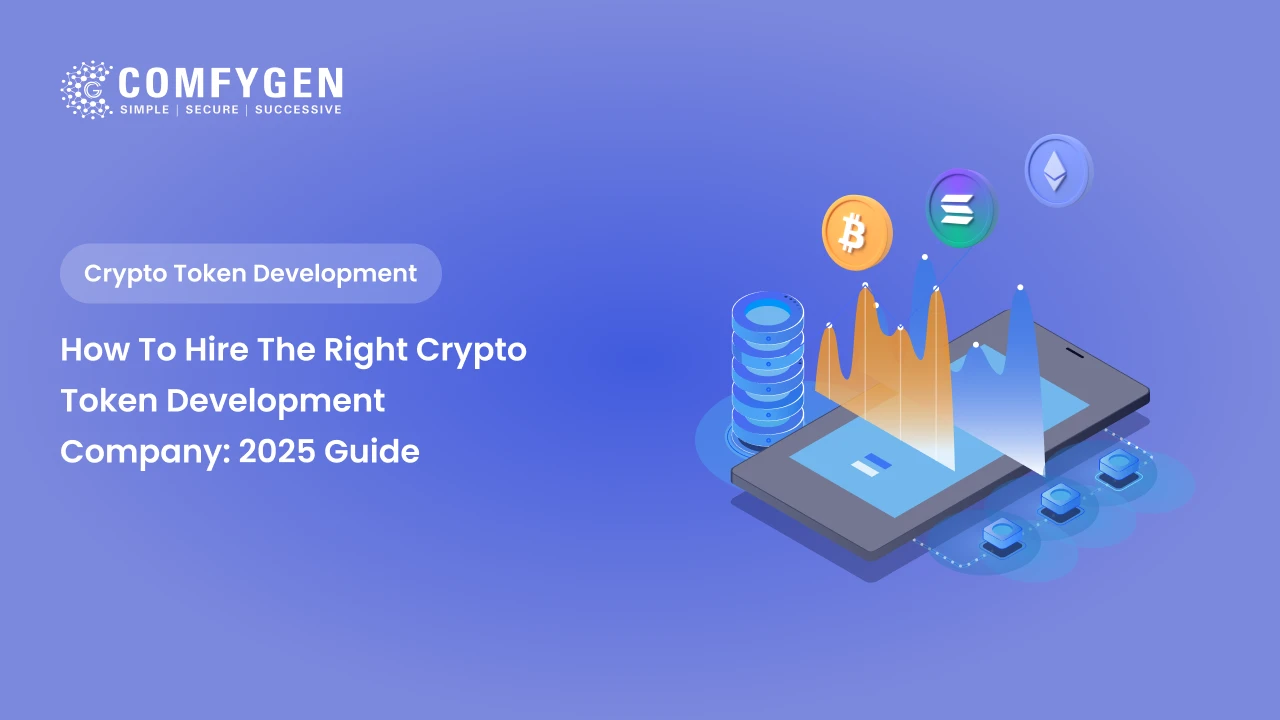Mobile Health Apps for Chronic Disease Management
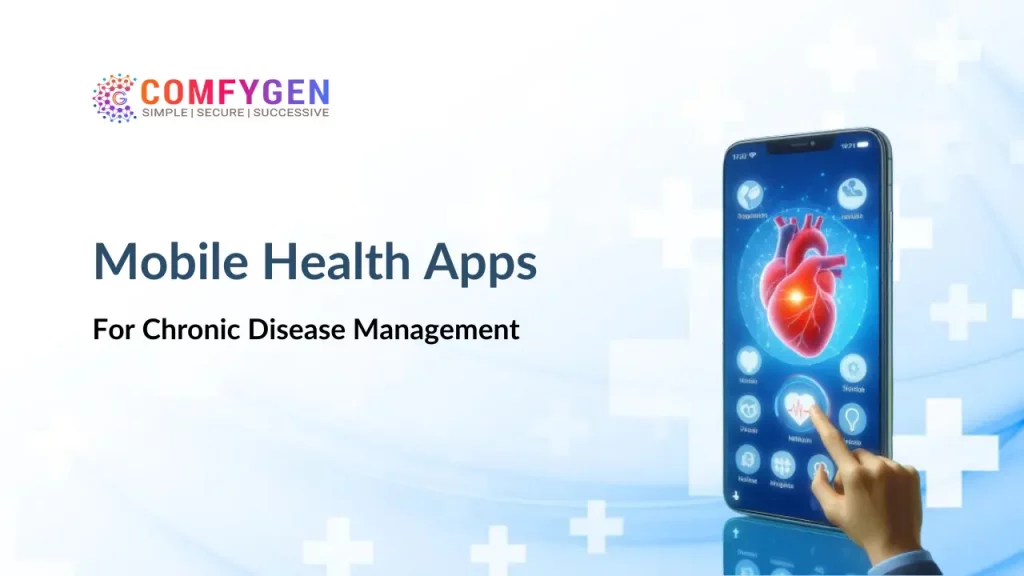
In today’s modern age, mobile health apps have become important for both patients and healthcare providers. For chronic disease management, mobile health applications are of great use. We all know that managing chronic disease or disorder is a matter of concern. Continuous monitoring and treatment management are required to control symptoms and manage the condition.
Over recent years, the occurrence of chronic diseases has increased at a rapid rate. Research shows that approximately one in three of all adults are suffering from multiple chronic conditions globally. Chronic disease has led to substantial social and economic burden on individuals and their families.
As you know, long-term conditions come with numerous side effects. In developing countries, the situation is particularly due to limited financial resources and insufficient investment in prevention, research, and treatment, leading to a sharp rise in chronic disease-related morbidity. In this situation, Mobile Health Apps have turned out to be a savior for timely monitoring.
Let’s discuss how mHealth apps aid in chronic disease management. But first, have a look at its market overview.
Overview of The Mobile Health App Market
The global mHealth apps market was earlier valued at a valuation of USD 33.17 billion in 2023. Now, it is expected that the market will reach from USD 36.68 billion in 2024 to USD 88.70 billion by 2032, with a CAGR of 11.7%.
The emerging opportunity of this market is the rapid ongoing development of the telecommunication sector and mobile phone technology. Advancements in telecommunications, such as the rollout of 4G LTE, create great opportunities for the mHealth industry to thrive.
A key factor driving this market is the increasing global prevalence of chronic disorders. Chronic diseases such as respiratory conditions, diabetes, heart issues, and hypertension have significantly boosted the adoption of mHealth apps. Moreover, industrial players are also focusing on mobile health app development with advanced features.
These apps play a pivotal role in the management of chronic conditions with advanced monitoring features for remote patients. Moreover, it includes frequent medication reminders to aid patients in managing their health routine. All these factors associated with mHealth apps support the market growth in the forecast period.
How Do Mobile Health Apps Aid in Chronic Disease Management?
Mobile applications are transforming chronic health management with their diverse benefits. It includes providing innovative solutions for patients and caregivers. Here are some notable advantages of using mobile health apps in managing chronic diseases:
Mobile Health Apps Offers Personalized Health Monitoring
Patients struggling with mobile apps need continuous monitoring. Healthcare mobile apps are successfully meeting the monitoring requirement and have even redefined the concept. The applications are equipped with intuitive interfaces and real-time monitoring systems through wearable devices. Moreover, they enable patients to stay well-informed about their conditions.
It offers a personalized approach, encouraging patients to actively manage their health. Also, it provides valuable data for healthcare providers to make well-informed decisions to treat chronic conditions.
Read Also: Future of Digital Health And App Development
Improves Adherence to Medication
Most of the mobile health apps offer a user-friendly platform for medication management. With essential features such as medication reminders, pill organizers, and dosage tracking, these apps are significantly improving adherence to medication.
In addition, these healthcare mobile applications are empowering patients with chronic conditions to take control of their medication routines. Also, it improves their overall health outcomes, offering them better disease control. This will further reduce the risk of sudden and future complications.
Facilitates Care of Remote Patient
Remote patients do not have easy access to healthcare facilities. They have to travel a certain distance to visit a doctor. If the remote patient is suffering from a chronic condition, mobile health apps will be really helpful. Wearable health technology and connected health apps now enable real-time tracking of vitals and health metrics. In addition, these apps utilize telemedicine capabilities to break down geographical barriers and improve healthcare accessibility and effectiveness.
With the integration of features such as virtual consultations, real-time treatment adjustments, and remote patient monitoring, healthcare professionals can offer more responsive and personalized care to patients. Secure communication channels and collaborative tools further enhance this approach.
Further, it aids in continuous patient management and timely interventions. Overall, this technological integration also ensures that patients receive comprehensive care regardless of their location. This makes healthcare services more adaptable for chronic disease management.
Effectively Promotes Lifestyle Modifications
Chronic disease patients must maintain their lifestyle in terms of diet, medication, and sleep. Lifestyle modifications can greatly benefit different chronic conditions. In this case, mobile health apps play a significant role in supporting and tracking healthy behaviors. Moreover, these health apps offer features that encourage healthy lifestyles, such as regular exercise, effective stress management, and balanced nutrition. Moreover, it aids individuals to make lasting changes.
The mobile health apps come with personalized tips and goal-setting tools that are effective in providing motivation and guidance. Moreover, the apps ensure users stay committed to healthier habits. By facilitating ongoing monitoring and offering tailored advice, mobile apps help individuals adopt and sustain beneficial lifestyle adjustments. Further, it ultimately improves overall health and well-being.
Helps in Data-Driven Decision Making
The mobile health apps collect real-time health data and information. It also provides crucial data to your healthcare professionals. With the utilization of data analytics tools, mobile-optimized healthcare apps uncover patterns, trends, and potential health issues. Further, this allows for proactive and personalized interventions.
This advanced approach enables the healthcare app development of tailored treatment plans based on individual health metrics. By facilitating data-driven decision-making, mobile apps enhance the accuracy and effectiveness of chronic disease management. This precise and informed method of managing specific health conditions ultimately leads to more effective and targeted care.
Emergency Response Planning
For individuals with chronic conditions who are at a higher risk of emergencies, mobile health apps play a vital role in creating and executing emergency response plans. These mobile healthcare apps enable users to access their emergency protocols, medical information, and communication tools directly from their smartphones. Features may include remote monitoring systems that can alert healthcare providers or emergency services during critical health situations.
When you integrate advanced capabilities, mobile health apps provide convenient and effective ways to manage emergencies. In addition, it ensures that patients receive prompt assistance whenever needed. Overall, the app enhances safety and readiness for unforeseen health events. This is why mobile healthcare app developers are integrating emergency response features into the healthcare mobile application.
Promotes Community Support
Mobile healthcare apps can cultivate a strong sense of community for patients managing chronic conditions. Moreover, it offers a virtual space for connection and interaction between patients and healthcare service providers. Also, custom healthcare apps aid in building supportive networks that go beyond traditional healthcare environments. The healthcare application serves as a platform where patients can share experiences, seek advice, and receive support.
By fostering these virtual communities, mobile health apps help patients feel less isolated and more connected to others who understand their challenges. This supportive network not only enhances their well-being but also provides valuable emotional and practical assistance. Also, it contributes to a more comprehensive approach to managing chronic disease conditions.
What is The List of Health Metrics Mobile Healthcare Apps Can Measure?
Mobile health apps have revolutionized personal health management by offering a platform to track a diverse array of health metrics. Healthcare app development company integrate essential health metrics to help patients get real-time information. Here is an overview of the key health metrics these apps can measure:
- Heart Rate: Mobile health apps measure the number of heartbeats per minute using sensors in wearable devices or smartphones. This metric monitors cardiovascular health and detects irregularities. Overall, it tracks fitness levels.
- Blood Pressure: Apps often work with connected blood pressure monitors to track systolic and diastolic pressure. Monitoring blood pressure aids in managing conditions such as hypertension and cardiovascular health.
- Blood Glucose Levels: Mobile healthcare app developers pair apps with glucometers to track blood sugar levels. This is essential for diabetes management. Moreover, this metric helps users maintain glycemic control and adjust their diet and medication.
- Body Temperature: The healthcare app development company integrates with temperature sensors. These apps can monitor body temperature to detect fevers and general vitals.
- Physical Activity: Utilizing accelerometers and GPS, health apps measure steps taken, distance traveled, and physical activity duration. This supports fitness goals, encourages regular exercise, and helps track overall activity levels to manage chronic disease.
- Sleep Patterns: Patients with chronic health conditions must have a proper sleep schedule. Mobile health apps use accelerometers and heart rate monitors to track sleep duration, quality, and stages. This information is vital for identifying sleep disorders and improving sleep hygiene.
- Hydration Levels: Apps help track daily water intake, which is essential for maintaining proper hydration. Users can set reminders to drink water and monitor their hydration status to support overall health.
- Caloric Intake: The healthcare apps enable users to log and track their daily food consumption. They record calories and nutrients so users can manage their diet, monitor weight, and ensure their nutritional needs.
- Oxygen Saturation: Using pulse oximeters, mobile health apps measure the percentage of oxygen in the blood. This is critical for assessing respiratory health and detecting potential issues.
Wrapping It Up!
This is how mobile health apps aid in chronic disease management. Healthcare service providers must invest in mobile health apps to provide remote assistance to their patients. It will transform your healthcare services, taking them to the next level. Comfygen will be your one-stop destination for developing high-quality and advanced-feature healthcare apps. Consult the team to know more!
Want To Develop Best Healthcare Mobile Application?
Contact us:
Whatsapp: +91 958-786-7258 / +1 579-977-4475
Email: [email protected]
Telegram: @comfygen

Mr. Saddam Husen, (CTO)
Mr. Saddam Husen, CTO at Comfygen, is a renowned Blockchain expert and IT consultant with extensive experience in blockchain development, crypto wallets, DeFi, ICOs, and smart contracts. Passionate about digital transformation, he helps businesses harness blockchain technology’s potential, driving innovation and enhancing IT infrastructure for global success.

